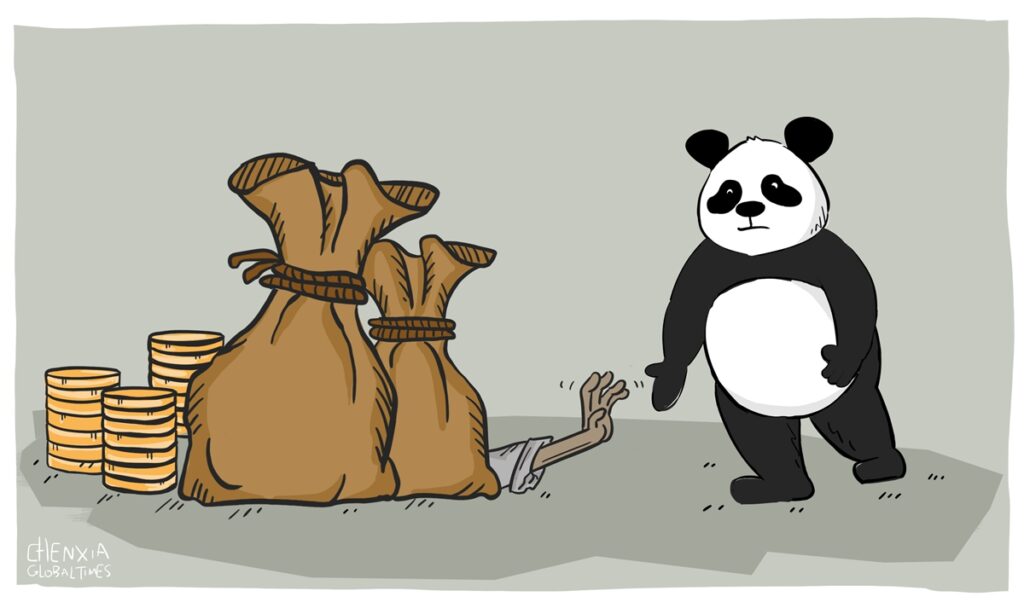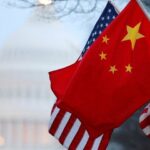The global economy enters 2021 holding both hope and fear – vaccines and new virus variants. With less-developed economies bearing the brunt of the crisis, their debt levels have raised the eyebrows. Since the outbreak, China has ratcheted up efforts to fight the virus together with the developing countries. Now, concerted global efforts are needed to pull the battered poor economies out of the quagmire.
At the Reuters Next conference on Wednesday, World Bank Chief Economist Carmen Reinhart said that China, “now the world’s largest official creditor”, would need to start restructuring the debt it is owed.
Cross-border debt is complicated. It needs identification regarding each debt creditor and form, which could not be lumped together that could be resolved by one catch-all solution. China has been ramping up efforts to help developing countries to fight against the crisis, from donating medical supplies to help relieving debt burdens. As the largest contributor to the G20 debt suspension initiative, China had announced its suspension of repayments from 77 developing countries and regions, officials said in June 2020. Also, it has written off matured interest-free loan for 15 African countries.
The COVID-19 pandemic has dragged some countries deep into financial distress, causing difficulties for them to pay back principles and interests on time. To reboot these economies, more development financing will be needed in the future. Debt suspension or restructuring are potential options, while more flexible and innovative approaches are in need for the involved parties to talk and find out.
Some Western politicians and global institutions have been exaggerating China’s role as the so-called the world’s “largest creditor”. While per survey by Jubilee Debt Campaign in 2018, China owed only 20 percent of African countries’ debt, compared to multilateral lenders’ 35 percent and private lenders’ 32 percent.
The ongoing industrialization and modernization of the developing countries has boosted their financing demand in recent years. Added with the enhancement of the South-South cooperation regime, China and many developing countries have seen strengthening ties, from development to trade and economic cooperation. In terms of financing exchange, China has tilted loan and credit support for least developed countries in Asia and Africa, as well as many economies under the Belt and Road Initiative.
China’s foreign aid came in at 270.2 billion yuan in 2013-18, including grants, interest-free loans and preferential loans, according to a White Paper titled China’s International Development Cooperation in the New Era. China’s cooperation with other countries follows the principle of mutual respect, equality and win-win cooperation. It focuses on common challenges and has delivered tangible benefits to their people and contributed to local socio-economic development.
The essential approach to address the rising debt pressure is to reboot development. With a committed effort to develop together with African countries, Chinese State Councilor and Foreign Minister Wang Yi visited Africa in the beginning of the year, demonstrating the great importance that Beijing attaches to Africa, China’s friendliness for Africa, and China’s unwavering solidarity with developing countries.
In the meantime, challenge remains in the world’s fight against the virus and the associated economic fallout, including rising protectionism in some developed countries which would limit their aid for the less developed countries and therefore, leading to a prolonged recovery path of the global economy.
China has committed to multilateralism and firmly showed its resolve to assist developing countries in overcoming the current crisis. However, it will take much more efforts, from not only China, but the whole international community, including the US, the EU and other players.
The article was compiled based on an interview with Song Wei and some excerpts from her recently published book – Cooperation and Win-win: Research on Jointly Building a China-African Community with a Shared Future. Song is an associate research fellow at the Chinese Academy of International Trade and Economic Cooperation. bizopinion@globaltimes.com.cn
Illustration: Chen Xia/GT




